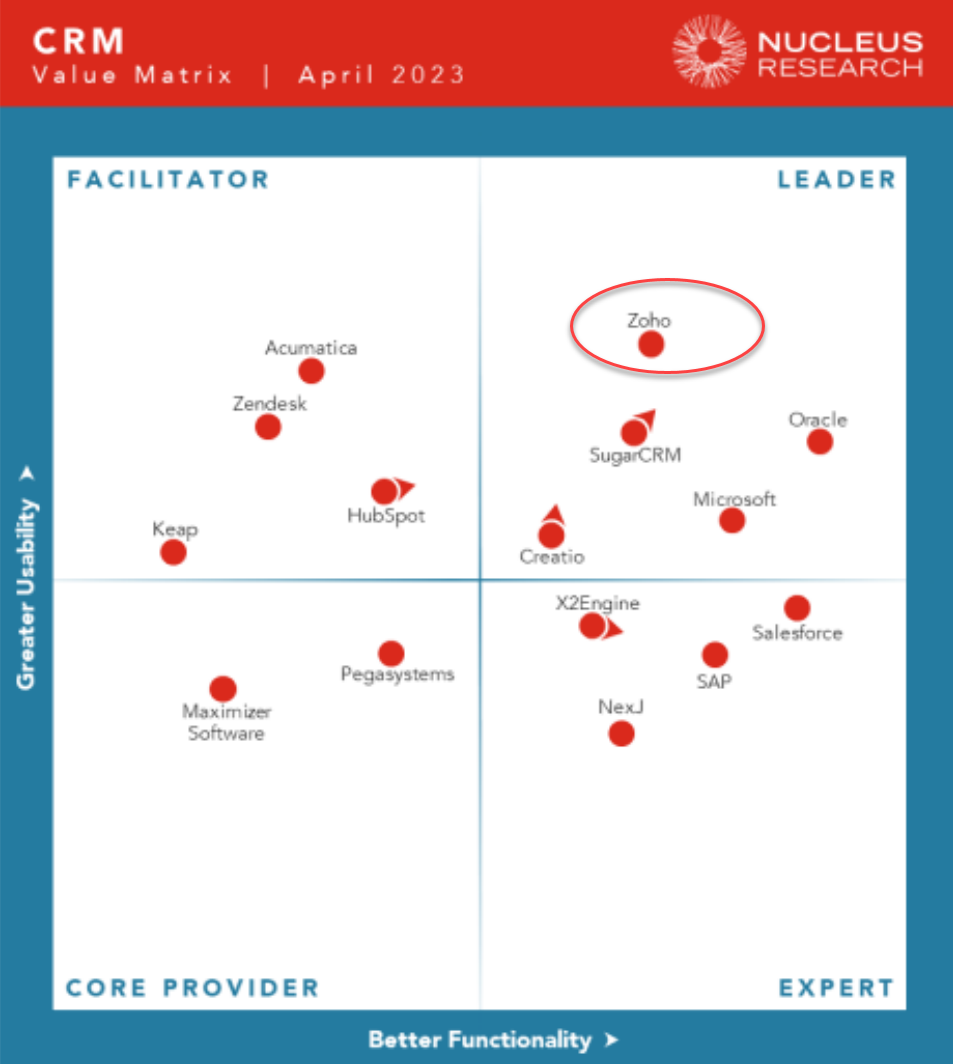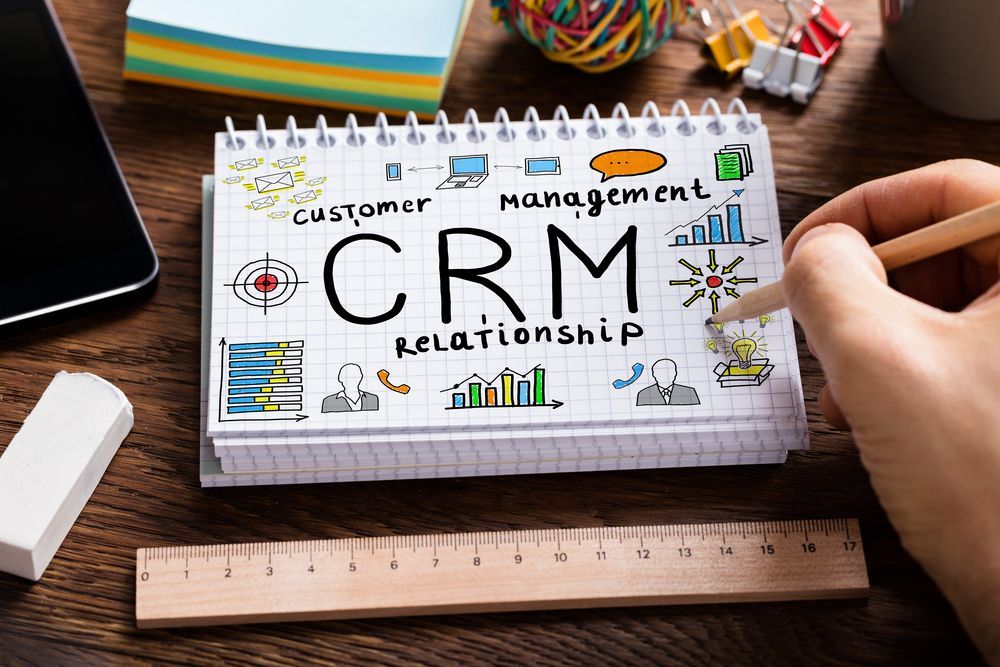How to win more B2B deals with CRM & Sales Process
A Well-Defined Sales Process and CRM System Can Transform B2B Sales
Introduction
In the world of B2B complex sales, having a well-defined sales process is paramount to success. It not only helps streamline operations but also enhances the ability to qualify deals effectively, resulting in increased conversion rates, shorter sales cycles, and improved sales forecasting accuracy. To achieve these outcomes, businesses can leverage the power of a Customer Relationship Management (CRM) system. In this article, we will delve into the value of a well-defined sales process, explore the typical steps in a B2B sales process, and highlight how a CRM system can support sales efforts and boost overall outcomes.
The Value of a Well-Defined Sales Process
A well-defined sales process provides a structured approach to selling that aligns the efforts of the entire sales team and ensures consistency in approach. It enables businesses to:
Improve Conversion Rates: By understanding the needs and pain points of potential customers, a well-defined sales process allows sales teams to effectively communicate the value proposition, address objections, and deliver tailored solutions. According to a study by CSO Insights, organizations with a defined sales process experienced a 28% higher win rate compared to those without.
Shorten Sales Cycles: A streamlined sales process eliminates bottlenecks, reduces wasted effort, and optimizes the progression of deals through each stage. This helps to minimize delays, accelerate decision-making, and close deals faster. Research by Vantage Point Performance and the Sales Management Association reveals that organizations with formal sales processes achieved 18% shorter sales cycles on average.
Enhance Sales Forecasting Accuracy: A well-structured sales process provides clear visibility into the status of each opportunity, allowing sales leaders to make accurate forecasts. This improves resource allocation, enables proactive decision-making, and fosters effective sales pipeline management. The Sales Management Association found that companies with reliable sales processes experienced 15% higher revenue growth compared to those without.
Typical Steps in a B2B Sales Process
While sales processes can vary across organizations, they generally encompass the following stages:
1. Prospecting and Lead Generation: This stage involves identifying potential leads and nurturing them to become qualified prospects.
2. Qualification and Needs Assessment: At this stage, the sales team evaluates prospects based on predetermined criteria, ensuring that they meet the ideal customer profile and have genuine interest or need for the product or service. A comprehensive needs assessment helps uncover pain points and understand the prospect's requirements.
3. Solution Presentation and Proposal: Once prospects are qualified, the sales team presents a tailored solution that aligns with their specific needs. This stage involves crafting a compelling proposal that showcases the value proposition, addresses pain points, and highlights the benefits of the product or service.
4. Negotiation and Objection Handling: In this stage, sales professionals engage in negotiations, handle objections, and address any concerns raised by the prospect. This step is critical for building trust and overcoming barriers to closing the deal.
5. Closing: The final stage involves obtaining commitment from the prospect, such as signing a contract, making a purchase, or initiating a partnership. Effective closing techniques and timely follow-ups are essential to secure successful outcomes.
How CRM Supports the Sales Effort
A CRM system serves as a central hub for managing and optimizing the sales process. It provides a range of features and benefits, including:
Opportunity Management: CRM enables sales teams to track and manage opportunities throughout the sales cycle. By maintaining a comprehensive database of prospects, activities, and interactions, sales professionals gain insights into the status of each opportunity, facilitating better decision-making and prioritization.
Sales Activity Planning and Management: CRM systems offer tools for scheduling and tracking sales activities, such as calls, meetings, and emails. By providing visibility into sales team activities, CRM helps managers monitor performance, identify bottlenecks, and ensure sales representatives stay on track.
3. Analytics and Reporting: A CRM system generates valuable insights through data analysis and reporting. Sales leaders can assess key performance metrics, measure conversion rates, identify trends, and make data-driven decisions to optimize sales processes and strategies.
4. Integration and Collaboration: CRM platforms can integrate with other business tools, such as email clients, marketing automation systems, and customer support software. This enables seamless data flow, enhances collaboration between teams, and facilitates a holistic view of the customer journey.
Positive Results and Statistics:
The impact of CRM systems on sales outcomes is well-documented. Here are some notable statistics:
1. According to Nucleus Research, CRM applications deliver an average return on investment (ROI) of $8.71 for every dollar spent.
2. A study by Forrester Research revealed that organizations using CRM experienced an average of 29% increase in sales revenue, 34% improvement in sales productivity, and 42% boost in forecast accuracy.
3. CSO Insights reported that companies with effective sales processes supported by CRM achieved 15% higher revenue growth compared to those without.
Conclusion
A well-defined sales process, coupled with a robust CRM system, can be a game-changer for B2B sales organizations. By automating and optimizing the sales journey, businesses can increase conversion rates, shorten sales cycles, and improve sales forecasting accuracy. A CRM system provides the necessary tools and insights to manage opportunities, plan sales activities, and enhance collaboration, leading to enhanced sales outcomes. Embracing a well-defined sales process and leveraging the power of CRM can empower organizations to thrive in today's competitive business landscape.
Sources:
- CSO Insights - "Sales Process Excellence"
- Vantage Point Performance and the Sales Management Association - "Sales Process Study"
- Forrester Research - "The Total Economic Impact of Microsoft Dynamics 365 for Sales"
- Nucleus Research - "CRM Technology Value Matrix 2H 2021"
- CSO Insights - "2018-2019 Sales Performance Study"











